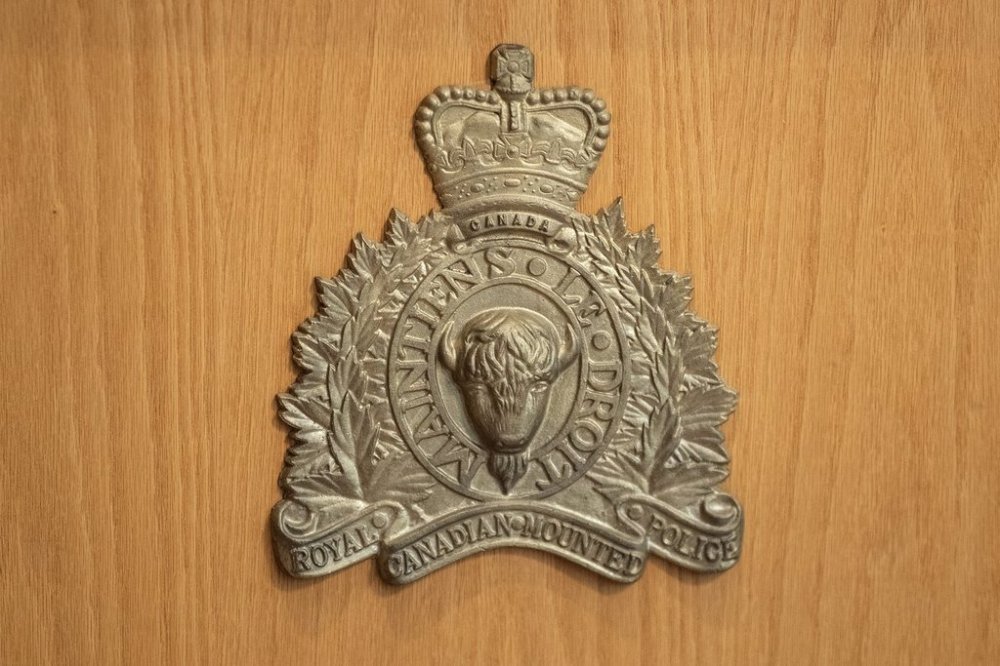P.E.I. man faces first terror charges in Atlantic, for allegedly 3D-printing firearms
Advertisement
Read this article for free:
or
Already have an account? Log in here »
To continue reading, please subscribe:
Monthly Digital Subscription
$0 for the first 4 weeks*
- Enjoy unlimited reading on winnipegfreepress.com
- Read the E-Edition, our digital replica newspaper
- Access News Break, our award-winning app
- Play interactive puzzles
*No charge for 4 weeks then price increases to the regular rate of $19.00 plus GST every four weeks. Offer available to new and qualified returning subscribers only. Cancel any time.
Monthly Digital Subscription
$4.75/week*
- Enjoy unlimited reading on winnipegfreepress.com
- Read the E-Edition, our digital replica newspaper
- Access News Break, our award-winning app
- Play interactive puzzles
*Billed as $19 plus GST every four weeks. Cancel any time.
To continue reading, please subscribe:
Add Free Press access to your Brandon Sun subscription for only an additional
$1 for the first 4 weeks*
*Your next subscription payment will increase by $1.00 and you will be charged $16.99 plus GST for four weeks. After four weeks, your payment will increase to $23.99 plus GST every four weeks.
Read unlimited articles for free today:
or
Already have an account? Log in here »
CHARLOTTETOWN – A man in Prince Edward Island is facing terrorism charges for allegedly making firearms with a 3D printer and uttering threats online against certain individuals and groups, the RCMP announced Wednesday.
The Mounties issued a statement saying 51-year-old Daniel Desmond Crowder had been charged with two terrorism-related offences under the Criminal Code, adding that the case marks the first time this type of charge has been laid in Atlantic Canada.
“The investigation started in February and he was making threats online to people and organizations,” RCMP Cpl. Erique Gasse said in an interview. “With … what we found in his computer … we are comfortable with laying those charges against Mr. Crowder.”

Gasse said he could not elaborate on the nature of the threats or who were the targets.
The first charge alleges Crowder knowingly facilitated a terrorist activity by possessing weapons and manufacturing firearms and their components, the RCMP said. The second charge relates to the possession of weapons, 3D-printing equipment and instructional guides on making AR-15 assault rifles and other firearms intended to be used for a terrorist activity.
The allegations against Crowder have not been tested in court.
“These charges show how seriously the RCMP take threats of violent extremism and terrorism and that we will act with every means available to protect the public,” RCMP Insp. Richard Marshall, head of the federal policing unit in P.E.I., said in the statement.
The statement from the Mounties says investigators could find no evidence of a “broader network” or active risk to the public.
“This case should not be seen as reflective of broader trends in our community,” the RCMP statement says. “P.E.I. remains one of the safest places in Canada, and this case demonstrates police readiness to respond to … serious threats.”
On Aug. 18, the Mounties confirmed they had imposed a one-year terrorism peace bond on Crowder, who is now in custody. The RCMP said the purpose of the peace bond was to ensure community safety during their investigation.
This type of peace bond is typically used in cases where police believe they have reasonable grounds to suspect a person might engage in terrorism, but they don’t have enough evidence for a successful conviction.
At the time the peace bond was imposed, Crowder was ordered to follow 29 conditions, including prohibitions on accessing the internet or possessing a passport. He was also told not to leave the province without written consent.
The RCMP later confirmed officers had seized 3D-printed firearm components and arrested the accused in February in North Rustico, P.E.I.
While terrorism charges in Canada are rare, it’s not the first time a terrorism peace bond has been imposed in P.E.I.
In April 2015, a P.E.I. university student was arrested after the Mounties applied for a terrorism peace bond, saying they feared he would commit a terrorism offence.
A search warrant application from April 2014 revealed police believed the student had collected enough castor beans to produce a “substantial amount” of the deadly toxin ricin.
The public document said police began collecting the student’s household garbage in December 2013 and later found documents on how to make an explosive compound, and a diagram of a small rocket with a section labelled “warhead.”
The student signed the peace bond in May 2015 and he was released from its conditions a year later. The young man was never charged and the allegations against him were never tested in court.
After the conditions of the peace bond were lifted, the student’s lawyer dismissed the allegations concerning the rocket, saying the parts could be purchased from a local toy shop.
At the time, Brandon Forbes said the case amounted to a misunderstanding based on the mistaken notion that possessing castor beans was proof that someone is prepared to make a deadly biotoxin.
This report by The Canadian Press was first published Nov. 19, 2025.
— By Michael MacDonald in Halifax.

